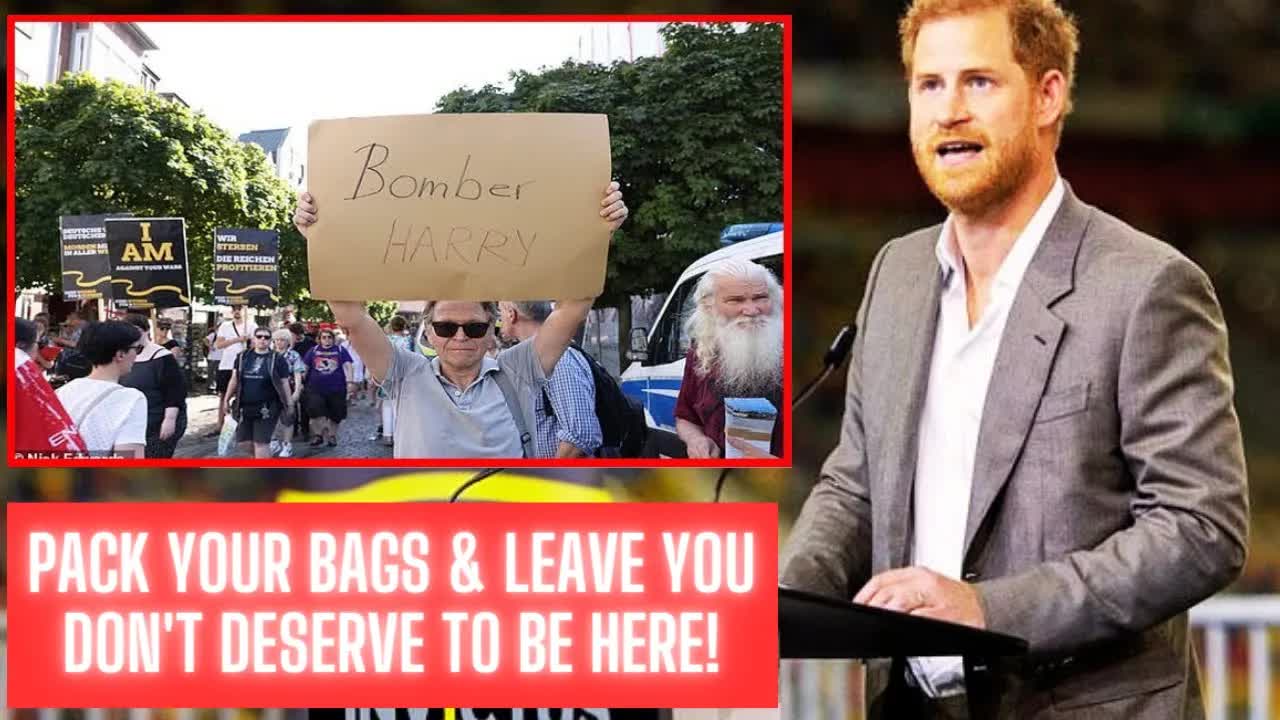In a surprising turn of events, Prince Harry found himself at the center of controversy during his recent appearance at the Invictus Games in Düsseldorf.
Known for his commitment to veterans and his own military service, Harry was met with a wave of boos and protests rather than the expected cheers.
This stark reception raises questions about the complexities surrounding his public persona and the impact of his past.
As he arrived at the Dusseldorf City Hall, the atmosphere was charged with tension.
Instead of being welcomed by applause, the prince faced a vocal crowd of around 50 protesters.
One protester, Reinhard Boehmer, stood out by repeatedly shouting “Bomber Harry” while brandishing a sign that echoed the sentiment.
This moniker was not just a random insult; it cleverly referenced the infamous World War II RAF commander, Bomber Harris, known for his controversial bombing campaigns.
Boehmer’s anger stems from Harry’s own admission of having killed 25 Taliban fighters during his military service.
To Boehmer, this confession painted Harry as a symbol of the British establishment, which he believes has engaged in unjust wars.
The protester argued that the very institution that sends soldiers into conflict is now celebrating their injuries, a contradiction he finds morally troubling.
The protest was not just a lone voice in the crowd.
Other demonstrators held signs with messages like “We died and the rich make profit” and “I am against your war.”
The organizer, Lucas Baumer, emphasized that events like the Invictus Games risk normalizing war, especially given the involvement of companies like Boeing and Lockheed Martin, which are deeply entrenched in the defense industry.
Adding to the protest’s intensity was dairy farmer Jürg Mayer, who did not hold back in his criticism.
His sign bluntly stated, “Now victims, but in the war preparators,” directly accusing Harry of murder due to his military actions.
Such strong sentiments highlight the deep divisions surrounding discussions of war and its aftermath.
Despite the uproar, Prince Harry’s earlier moments were poignant.
He had just attended a vigil commemorating the late Queen, where he reflected on his family with emotion.
However, the transition to the Invictus Games, where he began his speech in German and emphasized the importance of military uniforms, felt jarring in light of the protests.
This clash between celebration and condemnation cast a shadow over what is meant to be a unifying event for wounded veterans.
Instead of fostering camaraderie, the protests underscored the lingering pain and controversy tied to military conflict and its repercussions.
As Harry navigates this tumultuous landscape, one can’t help but wonder how these experiences will shape his future engagements.
Will he continue to advocate for veterans amidst such backlash, or will this incident lead him to reevaluate his approach?










